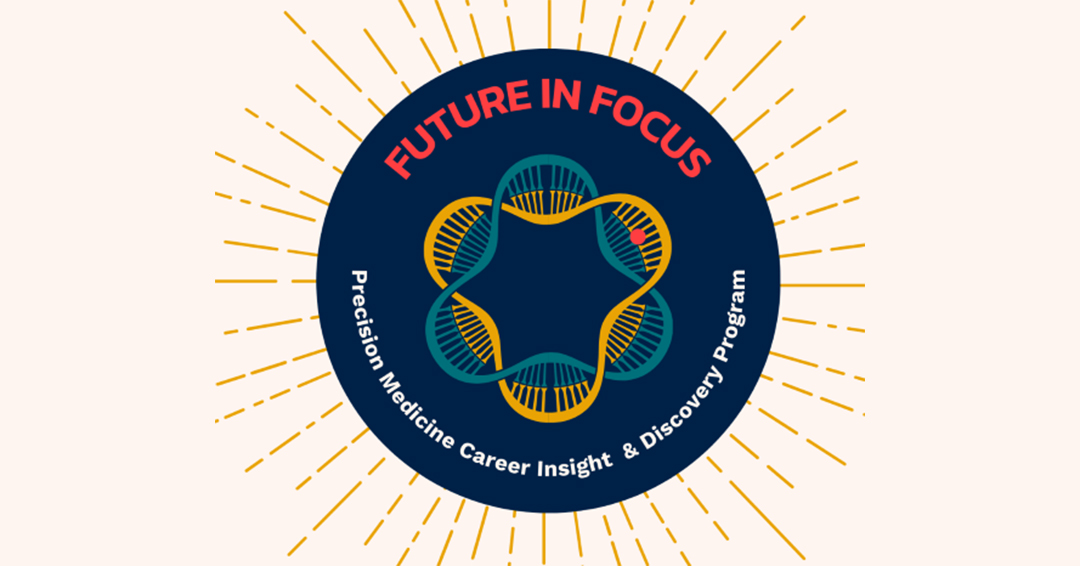
Eight-week career-development program exposes graduate students and postdocs to dynamic speakers in diverse roles in precision medicine.
An exciting new initiative—the Future in Focus (FIF): Precision Medicine Career Insight and Discovery Program—is equipping the next generation of scientists with the tools, mentorship, and confidence to explore and pursue dynamic careers in the field of precision medicine. Spearheaded by the TREMPLIN McGill-Affiliated Consortium and the Desjardins Centre for Advanced Training (DCAT) at the Research Institute of the McGill University Health Centre (The Institute), and supported by the Precision Medicine Training Program Committee, this pilot program has proven to be a transformative experience for graduate students and postdoctoral fellows.
Over the course of eight weeks, 25 participants committed to 16 hours of interactive, virtual sessions focused on real-world applications of precision medicine in healthcare, drug development, diagnostics, and medical innovation. The program featured 18 expert speakers from across academia, industry, government, and entrepreneurship, highlighting diverse roles such as scientific evaluator, health economist, regulatory affairs specialist, clinical research associate, and biotech entrepreneur.
Beyond simply presenting job titles, the program offered deep dives into career pathways through case studies and candid conversations with professionals who shared their non-linear journeys from academic research to impactful roles in various sectors. Weekly virtual sessions facilitated networking, knowledge exchange, and inspiration, fostering a sense of community among trainees exploring career transitions.
One participant shared, “The FIF program has been one of the most valuable experiences I’ve had at The Institute. It offers exposure to diverse perspectives on the job market and career paths, while also giving you the chance to connect with brilliant students who become your peers throughout the program.”
Participants also gained valuable exposure to Québec’s vibrant life sciences and biotechnology ecosystem. Discussions emphasized the collaborative, interdisciplinary nature of precision medicine and its growing role in shaping patient-centered treatments. Several attendees were selected to receive one-on-one mentorship through The 2nd Lab Mentorship Program, which pairs trainees with professionals aligned to their career interests. Additionally, the program connected trainees to funding opportunities for internships in non-academic settings, including through the TREMPLIN — Stage en pratique initiative.
The program’s outcomes speak for themselves. A remarkable 88% attendance rate and strong post-program survey results reflect its success:
- 86% of trainees reported a change in career aspirations, influenced by the program
- Over 85% gained new insights into potential career paths in precision medicine
- 86% experienced a boost in career-related confidence
- 95% of participants would recommend the program
Another trainee remarked, “My confidence has improved after hearing so many speakers’ success stories and their non-linear path towards career satisfaction.”
The FIF program represents an important step in bridging academic training with evolving opportunities in the life sciences sector. By supporting career exploration, mentorship, and professional development, the program contributes directly to The Institute’s 2030 Vision to develop talent and reinforce interdisciplinary research networks.
As interest in precision medicine grows, initiatives like FIF will continue to play a critical role in preparing highly qualified trainees to lead innovation and improve health outcomes across the research and clinical spectrum.
The organizers are grateful for financial support provided by Desjardins, the Fonds de recherche du Quebec (FRQ) and Montréal InVivo.
